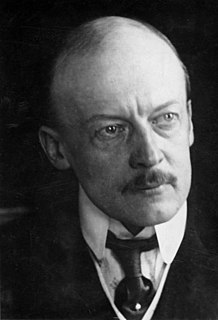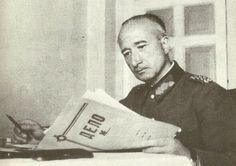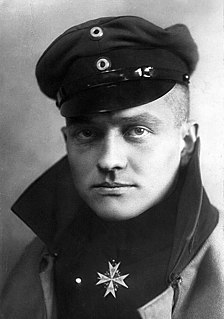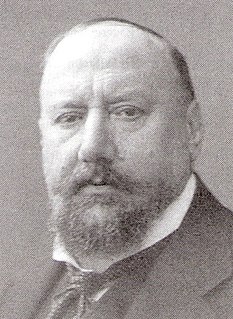 W
WHans Ritter von Adam, born Hans Adam, was a Bavarian flying ace in World War I, with 21 victories before being killed in action. He enlisted as an infantry private, and rose through the ranks to be commissioned an officer. His valor earned him his nation's highest awards, including one that posthumously raised him to nobility.
 W
WPrince Alfons of Bavaria was a member of the Bavarian Royal House of Wittelsbach and a General of Cavalry.
 W
WLeopold Anton Johann Sigismund Josef Korsinus Ferdinand Graf Berchtold von und zu Ungarschitz, Frättling und Püllütz, was an Austro-Hungarian politician, diplomat and statesman who served as Imperial Foreign Minister at the outbreak of World War I. Research shows that he shoulders the responsibility for going to war, according to findings in 1919 after the Austrian Empire's capitulation and dismemberment.
 W
WOberleutnant Hans Berr was a German professional soldier and World War I flying ace. At the start of the First World War, he served in a scout regiment until severely wounded; he then transferred to aviation duty. Once trained as a pilot, he helped pioneer the world's first dedicated fighter airplane, the Fokker Eindekker "flying gun". Flying one, Berr shot down two enemy airplanes in March 1916 as his contribution to the Fokker Scourge. Berr was then chosen to command one of the world's original fighter squadrons, Jagdstaffel 5. Leading his pilots by example, Berr scored eight more victories in a four week span in October - November 1916 while his pilots began to compile their own victories. Hans Berr was awarded Germany's highest military honor, the Pour le Merite, on 4 December 1916. During a 6 April 1917 dogfight, Berr and his wingman mortally collided.
 W
WHerrmann Gustav Karl Max von Fabeck was a Prussian military officer and a German General der Infantarie during World War I. He commanded the 13th Corps in the 5th Army and took part in the Race to the Sea on the Western Front and also commanded the new 11th Army on the Eastern Front. Subsequently, he commanded several German armies during the war until his evacuation from the front due to illness in 1916 and died on 16 December. A competent and highly decorated commander, von Fabeck is a recipient of the Pour le Mérite, Prussia's and Germany's highest military honor.
 W
WLudwig Alexander Friedrich August Philipp Freiherr von Falkenhausen was a German Generaloberst most notable for his activities during World War I.
 W
WEduard Friedrich Karl von Fransecky was Prussian general who served in the Austro-Prussian War and the Franco-Prussian War.
 W
WMax Clemens Lothar Freiherr von Hausen was a German army commander. He participated in the Austro-Prussian and Franco-German Wars and became Generaloberst of Saxon troops and War Minister in the Kingdom of Saxony. At the beginning of the First World War, he was the head of the Third Army which he led during the Battles of the Frontiers, Charleroi, and the Marne. He was relieved of his command because of illness in September 1914.
 W
WErnst Moritz Hess was a baptized German Jew who served in the Imperial German Army during the First World War. He commanded the company of the Bavarian Reserve Infantry Regiment 16 in which Adolf Hitler served during the war. During the inter-war period he served as a judge before being forced out of office after the passing of the Nuremberg Laws by the Nazis in 1935, as he was classified as a "full-blooded Jew" due to his mother being Jewish, even though he was baptised a Protestant.
 W
WArchduke Joseph August Viktor Klemens Maria of Austria, Prince of Hungary and Bohemia was a Feldmarschall of the Austro-Hungarian Army and for a short period head of state of Hungary. He was a member of the House of Habsburg-Lorraine, the eldest son of Archduke Joseph Karl of Austria (1833–1905) and his wife Princess Clotilde of Saxe-Coburg and Gotha (1846–1927). Joseph August's grandfather had been Palatine Joseph of Hungary (1776–1847), Palatine and Viceroy of Hungary, a younger son of Emperor Leopold II.
 W
WKraft Prinz zu Hohenlohe-Ingelfingen, was a Prussian general and military writer during the time of the German Empire.
 W
WEmich, 5th Prince of Leiningen was the son of Ernst Leopold, 4th Prince of Leiningen. He was 5th Prince of Leiningen from 1904 to 1918, and afterwards titular Prince of Leiningen from 1918 until his death.
 W
WArno Ernst Max von Lenski was a German military officer and general who served in the Imperial German army, the Wehrmacht of Nazi Germany, and after the war in the National People's Army of the German Democratic Republic, where he was also a politician.
 W
WPaul Emil von Lettow-Vorbeck, also called the Lion of Africa, was a general in the Imperial German Army and the commander of its forces in the German East Africa campaign. For four years, with a force of about 14,000, he held in check a much larger force of 300,000 British, Indian, Belgian, and Portuguese troops.
 W
WAlexander Adolf August Karl von Linsingen was a German general during World War I.
 W
WLudwig Wilhelm was a Duke in Bavaria and a member of the ducal branch of the House of Wittelsbach.
 W
WJoseph Maximilian Fridolin Ritter von Maillinger was a Bavarian General der Infanterie and War Minister under Ludwig II of Bavaria.
 W
WDuke Maximilian Emanuel in Bavaria was a German prince of the House of Wittelsbach, and a brother of Elisabeth of Bavaria, Empress of Austria and Queen of Hungary.
 W
WCount Oku Yasukata was a Japanese field marshal and leading figure in the early Imperial Japanese Army.
 W
WOtto was King of Bavaria from 1886 until 1913. However, he never actively ruled because of alleged severe mental illness. His uncle, Luitpold, and his cousin, Ludwig, served as regents. Ludwig deposed him in 1913, a day after the legislature passed a law allowing him to do so, and became king in his own right.
 W
WPrince Antoni Wilhelm Radziwiłł was a member of the Polish-Lithuanian nobility and a General of the Artillery in the Prussian Army. He was the nephew of Princess Elisa Radziwiłł, the first love of their kinsman King William I of Prussia, who would later become the first German Emperor.
 W
WManfred Albrecht Freiherr von Richthofen, known in English as Baron von Richthofen was a fighter pilot with the German Air Force during World War I. He is considered the ace-of-aces of the war, being officially credited with 80 air combat victories.
 W
WDuke Robert Maria Klemens Philipp Joseph of Württemberg was a member of the House of Württemberg and a Duke of Württemberg.
 W
WEmil Friedrich Franz Maximilian Graf von Schlitz genannt von Görtz was a German sculptor, Hessian nobleman, cultural policymaker and confidant of Kaiser Wilhelm II.
 W
WAdrian Friedrich Wilhelm Julius Ludwig von Verdy du Vernois, often given the short name of Verdy, was a German general and staff officer, chiefly noted both for his military writings and his service on Helmuth von Moltke the Elder's staff during the Franco-Prussian War.
 W
WPrince Nikita Grigorievich Volkonsky was a Russian general from the Volkonsky family. He took part in the Napoleonic wars and later converted from Orthodoxy to Roman Catholicism.
 W
WAugust Ludwig Traugott Botho Graf zu Eulenburg was an officer in the Prussian, and later German armies, and official in the Prussian royal court. He was the younger brother of Count Botho zu Eulenburg, who served as Minister-President of Prussia from 1892 to 1894, and a second cousin of Philipp, Prince of Eulenburg-Hertefeld, the close friend of Kaiser Wilhelm II.